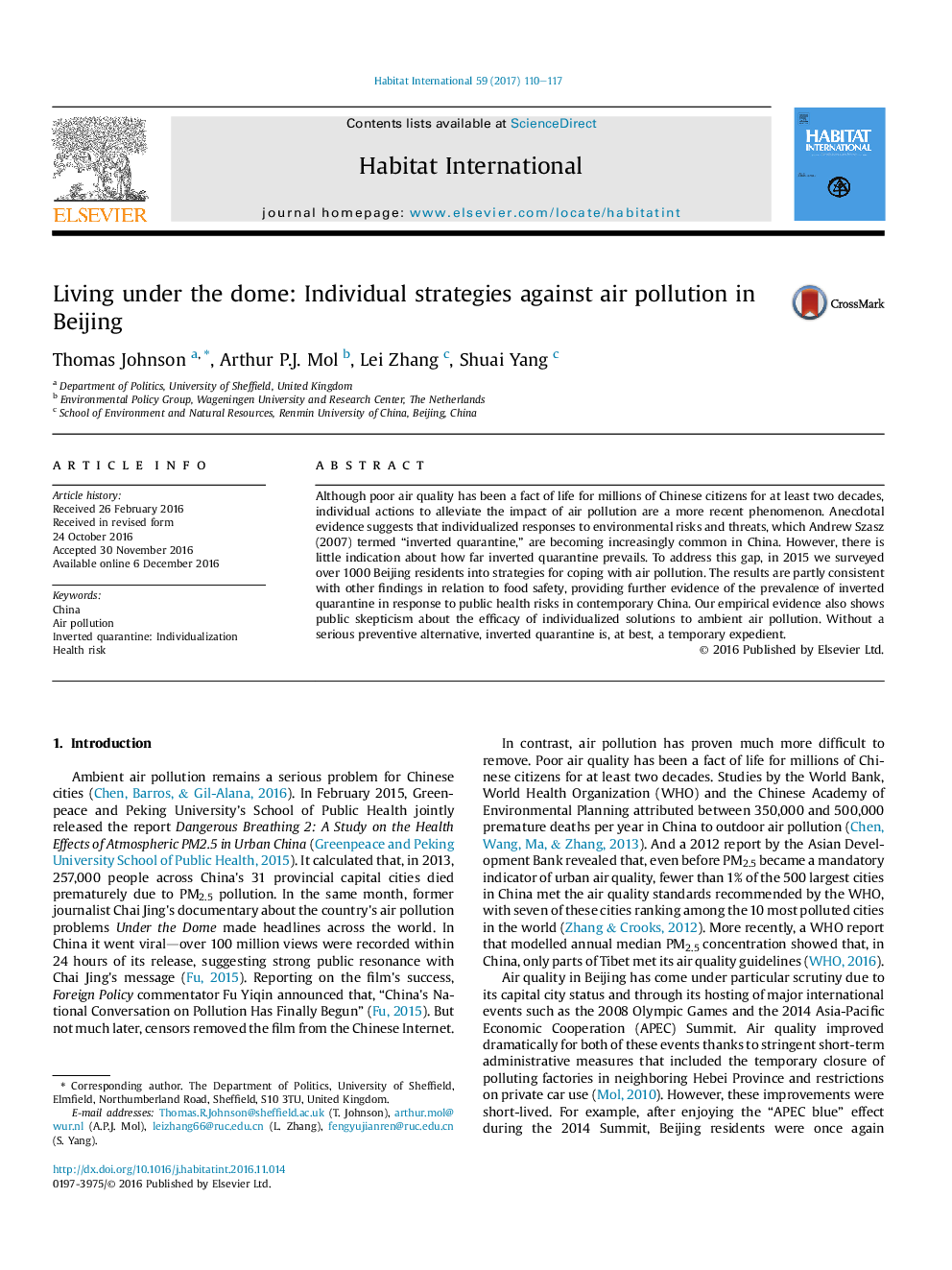| Article ID | Journal | Published Year | Pages | File Type |
|---|---|---|---|---|
| 5114704 | Habitat International | 2017 | 8 Pages |
â¢Over 1000 Beijing residents were surveyed about how they cope with air pollution.â¢Respondents showed high reliance on individualized strategies, or “inverted quarantine”.â¢Respondents believe individualized strategies have limited effect against air pollution.â¢The boundary between individualized and politicised strategies against pollution can be unclear.
Although poor air quality has been a fact of life for millions of Chinese citizens for at least two decades, individual actions to alleviate the impact of air pollution are a more recent phenomenon. Anecdotal evidence suggests that individualized responses to environmental risks and threats, which Andrew Szasz (2007) termed “inverted quarantine,” are becoming increasingly common in China. However, there is little indication about how far inverted quarantine prevails. To address this gap, in 2015 we surveyed over 1000 Beijing residents into strategies for coping with air pollution. The results are partly consistent with other findings in relation to food safety, providing further evidence of the prevalence of inverted quarantine in response to public health risks in contemporary China. Our empirical evidence also shows public skepticism about the efficacy of individualized solutions to ambient air pollution. Without a serious preventive alternative, inverted quarantine is, at best, a temporary expedient.
